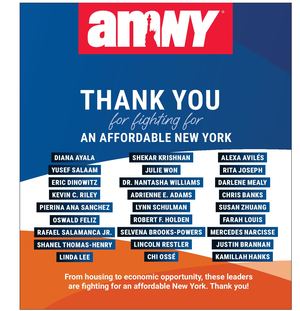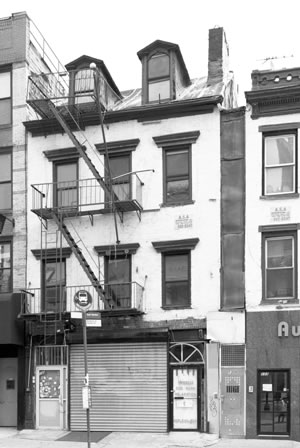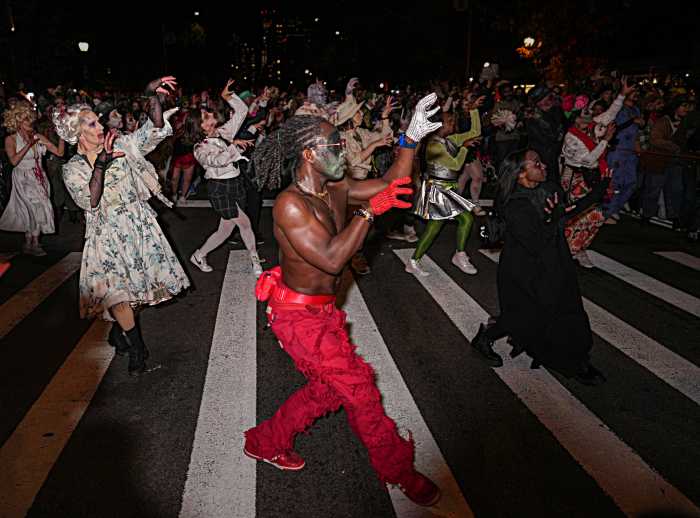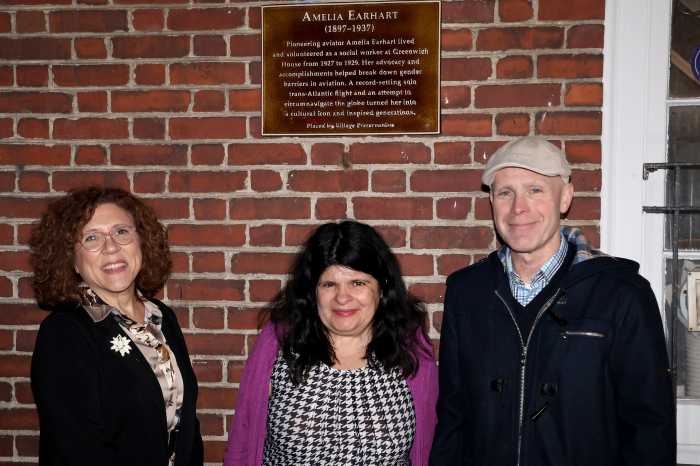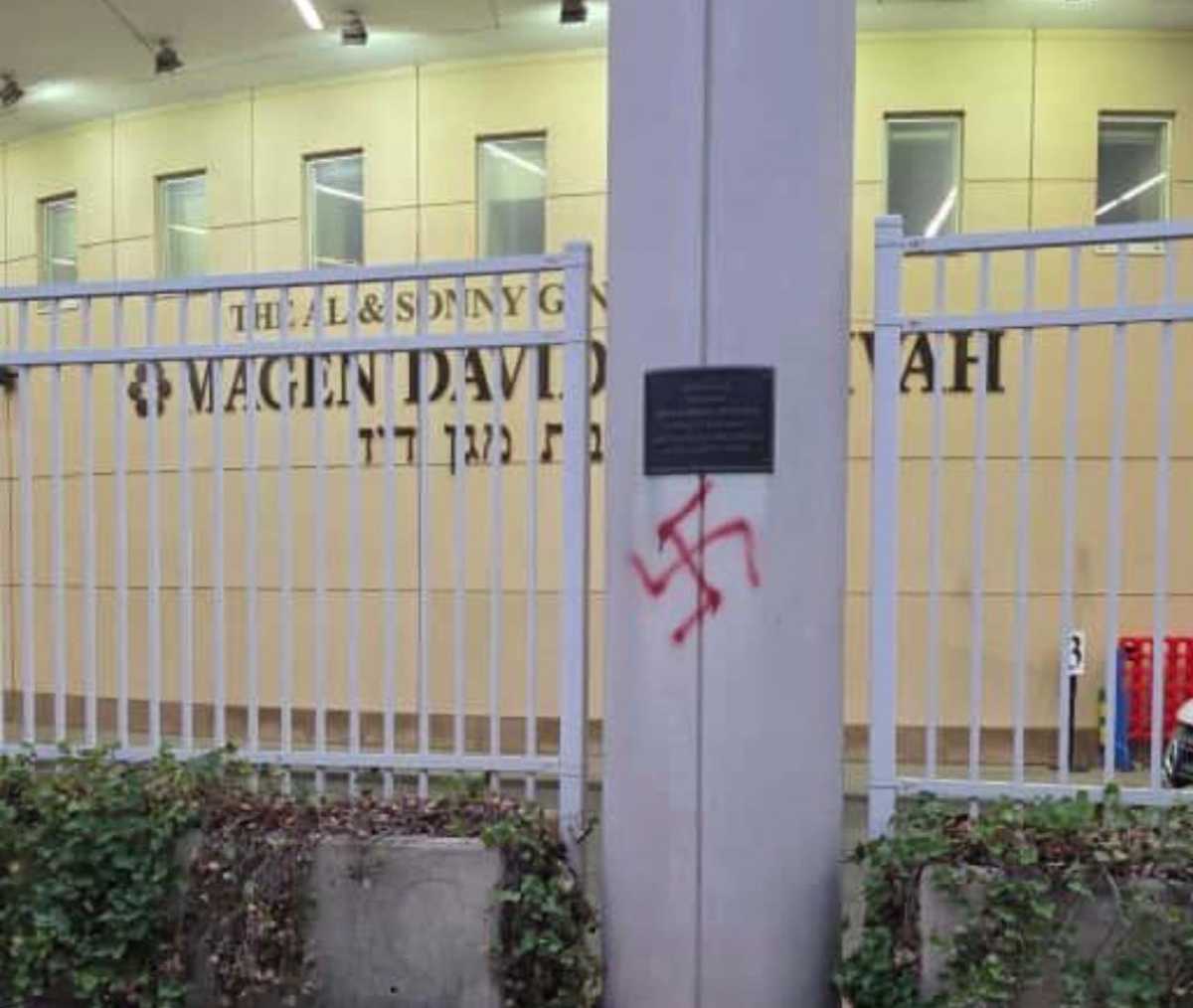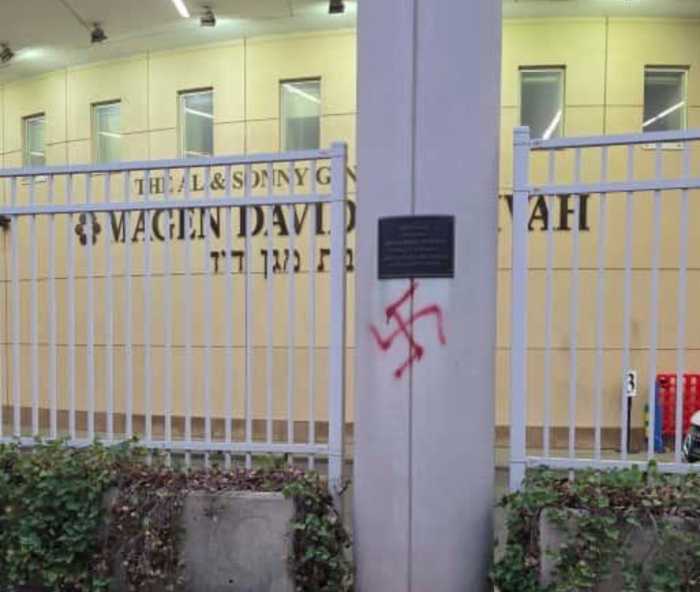By Albert Amateau
The City Council voted yesterday to deny landmark designation to 135 Bowery, between Grand and Broome Sts. following the lead of Councilmember Margaret Chin, who originally supported landmark status for the building that dates from 1817.
A week earlier, the Council’s landmarks subcommittee voted four to one to deny landmarking for the oldest building on the famed thoroughfare despite pleas to approve it from more than 40 preservation groups and more than 500 signatories to a petition.
Chin, representing the district where the three-and-a-half-story building is located, told the subcommittee on Sept. 15 that she decided to reverse herself because of the dire condition of the building and the need to help Chinatown’s economic recovery.
Representatives of the building’s owner, First American International Bank, told the subcommittee the bank is seeking federal tax credits that would enable it to include office space for small local businesses at below market rent in a new seven-story replacement.
Chin noted that she has supported many landmark designations on the Bowery. “But in this instance, I have to look at the bigger picture and find a balance. There is an opportunity to help the community recover from [the World Trade Center attack], which it hasn’t done. I just hope that the advocates will see my point of view on this and that we will have the opportunity to continue to work to preserve the historic character of the Bowery. But on this building we will have to differ.” Chin said.
The Landmarks Preservation Commission designated the landmark in June after an earlier hearing. The Council has the final approval for designations and usually follows the lead of the councilmember, whose district includes the landmark.
However, owners of designated properties may apply for a hardship exemption to alter or demolish a landmark if they can prove it is economically unfeasible to comply with landmark regulations.
First American International did not choose the hardship option, but took a less common action instead, and asked Chin to join a council rejection of the landmark designation.
Preservation advocates told the subcommittee that First American International’s plea to the council was intended to beat the landmarks law.
“There is a well-documented hardship process. The owner hasn’t applied it, ” said Simeon Bankoff, executive director of the Historic Districts Council. “They are here in an attempt to circumvent the law,” he added.
Elizabeth Finklestein of the Greenwich Village Society for Historic Preservation was also concerned about the precedence of a City Council disapproval of designation by the Landmarks Preservation Commission.
“This is not the first time that the owner of a landmarked building has voiced concern over the perceived costs of maintenance,” Finklestein said. “Fortunately, there is a way to deal with that issue that does not involve an overturning of the Landmarks Preservation Commission vote by the City Council,” she said, referring to the hardship application.
David Mulkins, president of the Bowery Alliance of Neighbors, said the building occupied “a central place in one of the oldest, most well-preserved intact stretches of the Bowery.” The street where the landmark was built and the building itself will become eligible in October for listing in the National and State Registry of Historic places, Mulkins said.
However, Adam W. Rothkrug, the attorney for First American International, said the bank bought the vacant building for $5 million in 2007 in order to build “a modest seven-story building before there was any hint of landmarking.” Plans were approved in February of 2010.
Engineers for the company determined the building had been modified numerous times over the years. They indicated the façade was severely compromised and noted “the prohibitive cost to restore or recreate the [original] elements, involving the replacement of almost every single structural element of the building,” Rothkrug said.
Four landmarks subcommittee members voted not to approve the designation, with Lower East Side Councilmember Rosie Mendez, the only vote in favor of approval.
